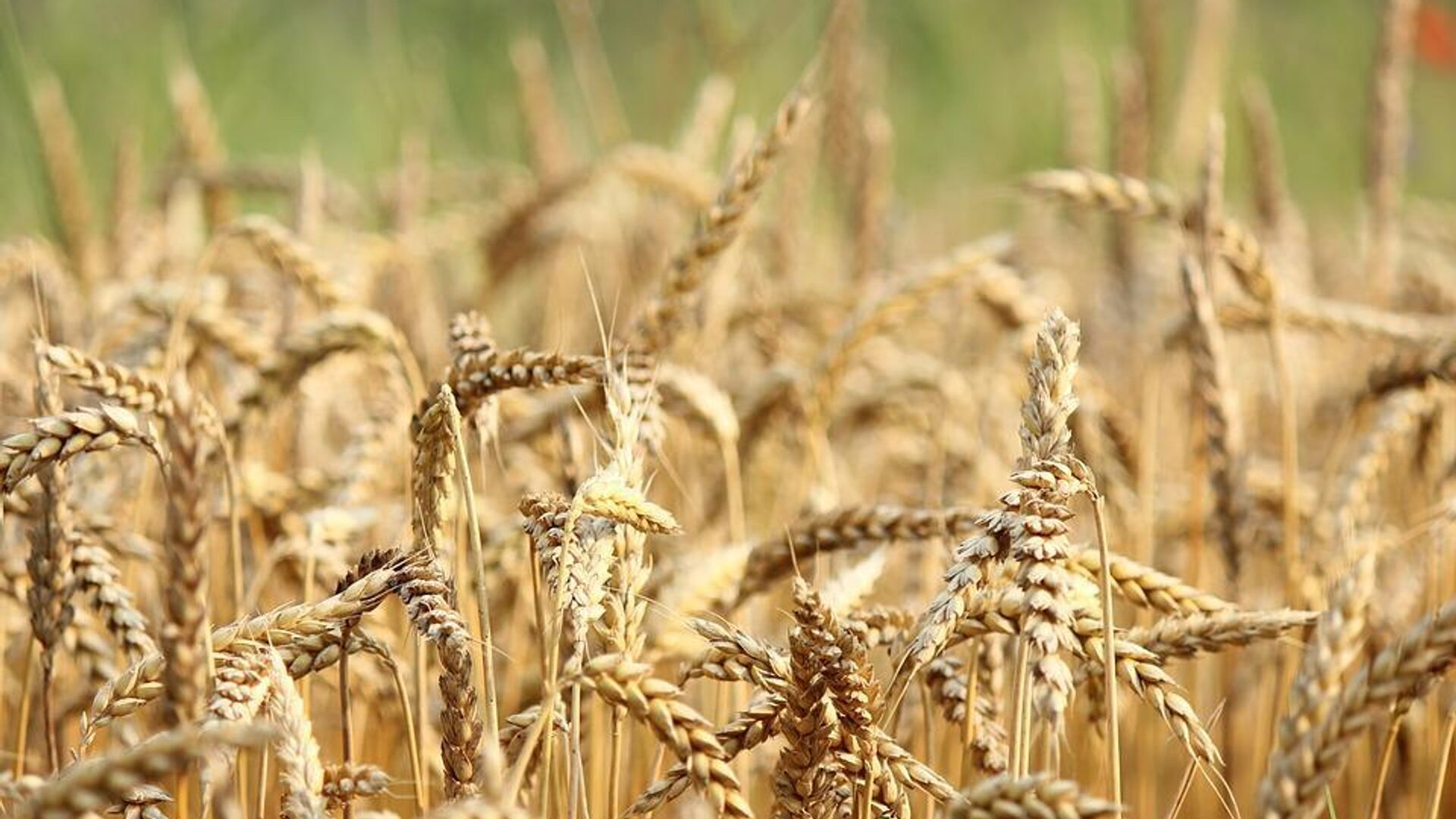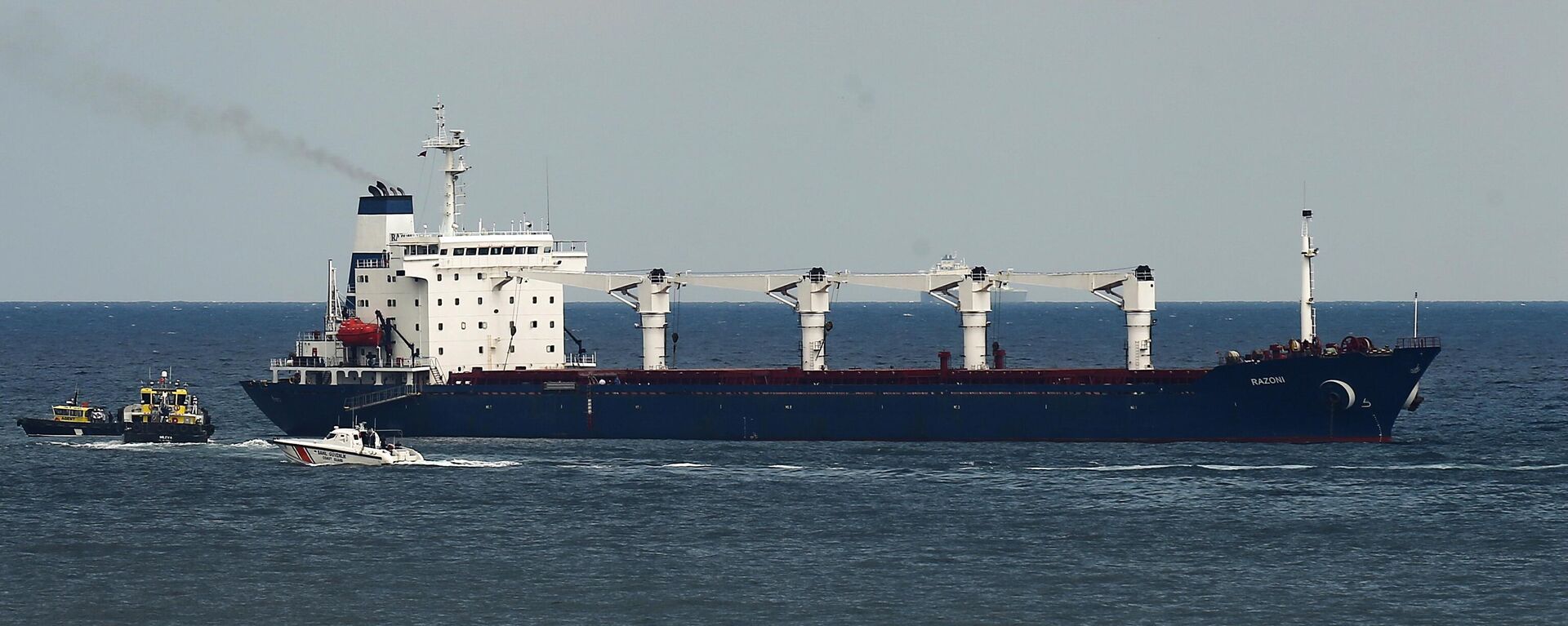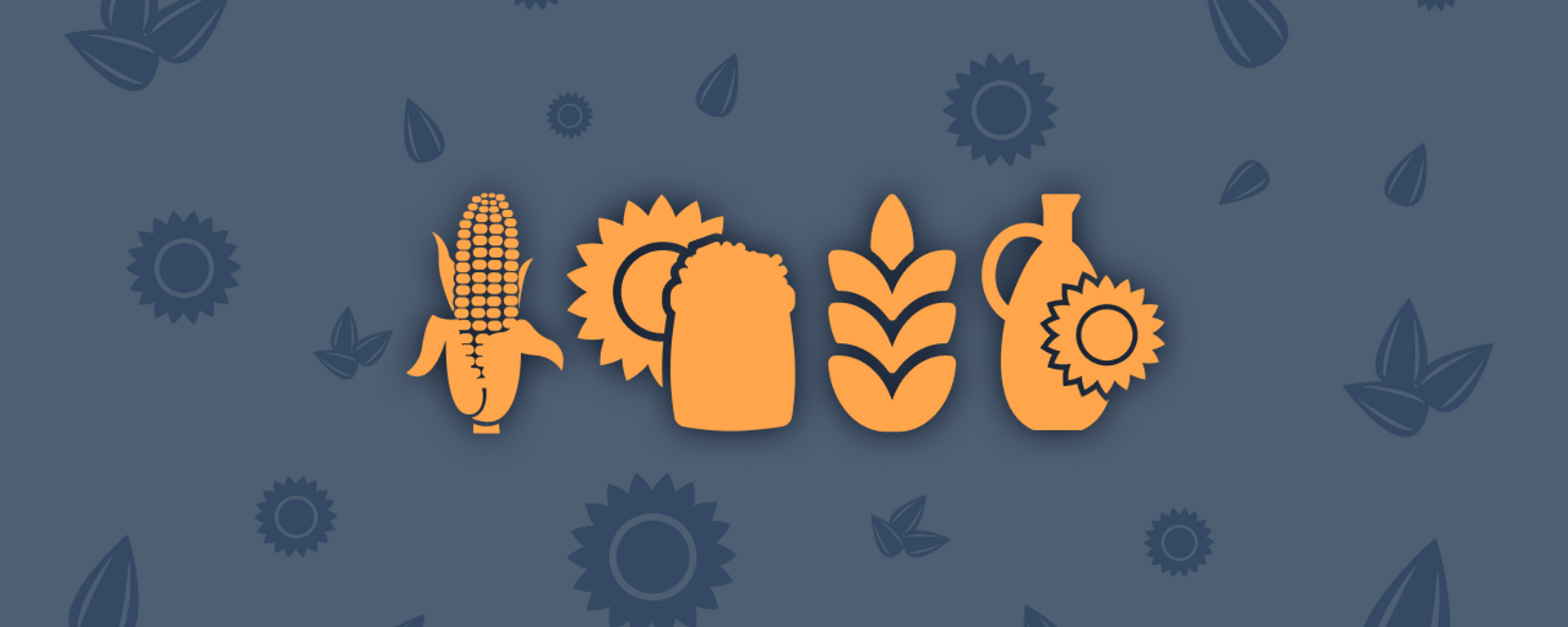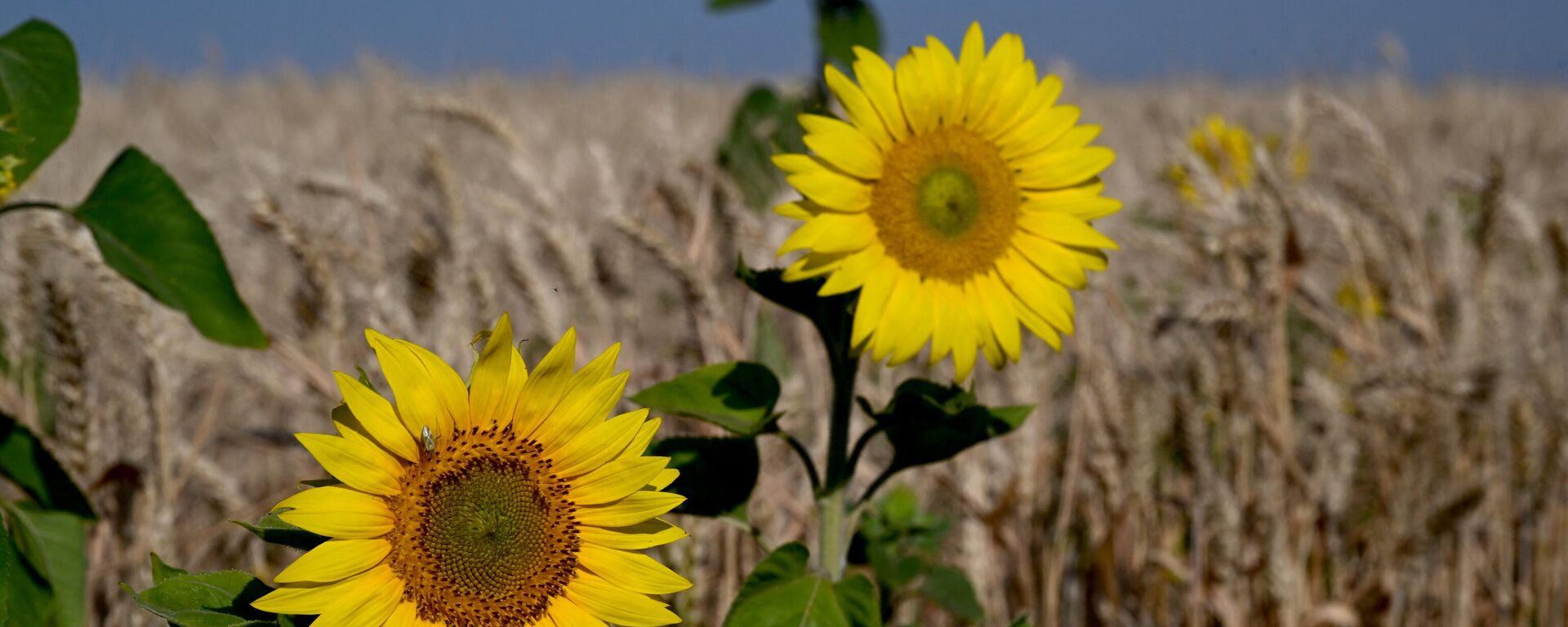https://sputnikglobe.com/20230717/russia-suspends-participation-in-grain-deal---kremlin-1111932906.html
Russia Suspends Participation in Grain Deal
Russia Suspends Participation in Grain Deal
Sputnik International
The suspension of the year-old Black Sea Grain Initiative comes after months of controversy concerning Western countries' failure to implement its terms ... 17.07.2023, Sputnik International
2023-07-17T08:59+0000
2023-07-17T08:59+0000
2023-07-17T14:33+0000
russia
ukraine
black sea grain deal
https://cdn1.img.sputnikglobe.com/img/07e6/05/19/1095758210_0:14:960:554_1920x0_80_0_0_630f456637dce8a64c242da5c30a91df.jpg
Moscow has suspended its participation in the Black Sea Grain Initiative, but will be prepared to return to the deal as soon as agreements concerning Russia are implemented properly, Kremlin spokesman Dmitry Peskov has said.July 17 was the deadline for the Grain Deal's extension, with Moscow warning repeatedly in recent weeks and months that it would consider halting its participation in the agreement until and unless its demands concerning artificial measures put in place by the United States and its allies to strangle Russian agricultural and fertilizer exports were met.The Grain Deal or Black Sea Grain Initiative is a two part agreement signed in July 2022 by Russia, Ukraine, Turkiye, and the United Nations to facilitate agricultural exports from Russia and Ukraine - two of the world's leaders on agricultural production who jointly account for over a third of global cereals exports.The first part of the agreement - the facilitation of the export of Ukrainian foodstuffs from Black Sea ports through waters controlled by the Russian Navy, have been implemented in full, with tens of millions of tons of grains including corn, wheat, barley, and sunflower oils worth over $5.5 billion exported through safe corridors over the past year.The second part of the agreement, concerning Russian food and fertilizer exports, has not been implemented to anywhere near the same levels, with the United States and the European Union failing to lift or ease sanctions restrictions, resulting in banks hesitating to issue loans for purchases of Russian grain, insurers refusing to provide insurance, and agricultural equipment producers halting sales to Russia and stopping the supply of spare parts and maintenance, all in fear of reprisals from Washington and Brussels. At the same time, Russia's agriculture-focused Rosselkhozbank remains disconnected from SWIFT, resulting in difficulties in international payments, and many foreign assets and deposits of Russian companies linked with the transportation of food and fertilizers remain blocked. Finally, a section of the Togliatti-Odessa pipeline - which used to ship Russian ammonia for use in fertilizers to the Black Sea port of Odessa, was blown up by Ukrainian saboteurs in June, restricting Russia's ability to export fertilizers via traditional trade routes.Turkish President Recep Tayyip Erdogan expressed regret over Russia's decision later in the day Monday, saying the Grain Deal had "made history" and prevented a global food crisis. Erdogan said recently appointed Turkish Foreign Minister Hakan Fidan will hold talks with Russian Foreign Minister Sergei Lavrov to discuss the agreement's fate. He added that he personally expects to discuss the deal with President Putin after returning from his whirlwind fundraising tour in the Gulf.A UN official confirmed to Sputnik later in the day that the international body had been officially notified by the Russian side on the Grain Deal's suspension. "We've received a note in Istanbul," the official said.Russian deputy representative to the UN Dmitry Polyanskiy confirmed that Moscow's decision on the Grain Deal was final, and said there are no talks ongoing on the matter.Grain Deal's Main Purpose UnfulfilledIn addition to failing to account for Russia's commercial and economic interests, the Grain Deal did not serve the moral, humanitarian purpose which UN Secretary-General Antonio Guterres outlined when lobbying Moscow to sign it in 2022: namely the effort to ensure food security for food-insecure nations in the Global South.Earlier this month, Russia's Foreign Ministry calculated that just 2.6 percent of all shipments via the Grain Deal went to the world's most food insecure nations, including Ethiopia, Yemen, Afghanistan, Sudan and Somalia, with 80 percent going to countries with high or above average incomes. Other estimates suggest that nearly 70 percent of the grain ended up in European Union countries and Turkiye, with part of these deliveries used as surplus grain to fatten up domestic livestock.According to Moscow, of all the exports carried out by Ukraine over the Black Sea Grain Initiative's lifespan, some 70 percent consisted of feed corn and fodder crops, while Russian grain supplies (70 percent of which consist of wheat), as well as fertilizers, remain constrained despite their potential to help push down spiking global wheat prices, which have a tendency to hit developing nations the hardest.President Putin dropped hints on the Grain Deal's fate in an interview with Russian media last week."As for the conditions under which we had agreed to ensure the safe export of Ukrainian grain, yes, there were clauses within this agreement with the UN under which Russian interests had to be taken into account, including logistics, insurance, the transfer of funds related to payment for our agricultural goods, and many other points," Putin said.
https://sputnikglobe.com/20230717/what-is-the-ukraine-grain-deal-everything-you-need-to-know-1111913789.html
https://sputnikglobe.com/20230716/check-out-the-black-sea-grain-deals-key-details--1111903412.html
https://sputnikglobe.com/20230716/kiev-stands-to-lose-500-mln-a-month-if-grain-deal-terminated-analysis-shows-1111921168.html
russia
ukraine
Sputnik International
feedback@sputniknews.com
+74956456601
MIA „Rossiya Segodnya“
2023
News
en_EN
Sputnik International
feedback@sputniknews.com
+74956456601
MIA „Rossiya Segodnya“
Sputnik International
feedback@sputniknews.com
+74956456601
MIA „Rossiya Segodnya“
russia, ukraine, black sea grain deal
russia, ukraine, black sea grain deal
Russia Suspends Participation in Grain Deal
08:59 GMT 17.07.2023 (Updated: 14:33 GMT 17.07.2023) The suspension of the year-old Black Sea Grain Initiative comes after months of controversy concerning Western countries' failure to implement its terms - specifically steps to facilitate the export of Russian foodstuffs and fertilizers.
Moscow has suspended its participation in the Black Sea Grain Initiative, but will be prepared to return to the deal as soon as agreements concerning Russia are implemented properly, Kremlin spokesman Dmitry Peskov has said.
"The Grain Deal has been stopped. As soon as its Russian part is implemented, the Russian side will immediately return to the implementation of this agreement," Peskov told reporters on Monday.
July 17 was the deadline for the Grain Deal's extension, with Moscow
warning repeatedly in recent weeks and months that it would consider halting its participation in the agreement until and unless its demands concerning artificial measures put in place by the United States and its allies to strangle Russian agricultural and fertilizer exports were met.
The Grain Deal or Black Sea Grain Initiative is a two part agreement signed in July 2022 by Russia, Ukraine, Turkiye, and the United Nations to facilitate agricultural exports from Russia and Ukraine - two of the world's leaders on agricultural production who jointly account for over a third of global cereals exports.
The
first part of the agreement - the facilitation of the export of Ukrainian foodstuffs from Black Sea ports through waters controlled by the Russian Navy, have been implemented in full, with tens of millions of tons of grains including corn, wheat, barley, and sunflower oils worth over
$5.5 billion exported through safe corridors over the past year.
The second part of the agreement, concerning Russian food and fertilizer exports, has not been implemented to anywhere near the same levels, with the United States and the European Union failing to lift or ease sanctions restrictions, resulting in banks hesitating to issue loans for purchases of Russian grain, insurers refusing to provide insurance, and agricultural equipment producers halting sales to Russia and stopping the supply of spare parts and maintenance, all in fear of reprisals from Washington and Brussels. At the same time, Russia's agriculture-focused Rosselkhozbank remains disconnected from SWIFT, resulting in difficulties in international payments, and many foreign assets and deposits of Russian companies linked with the transportation of food and fertilizers remain blocked. Finally, a section of the Togliatti-Odessa pipeline - which used to ship Russian ammonia for use in fertilizers to the Black Sea port of Odessa, was blown up by Ukrainian saboteurs in June, restricting Russia's ability to export fertilizers via traditional trade routes.
Turkish President Recep Tayyip Erdogan expressed regret over Russia's decision later in the day Monday, saying the Grain Deal had "made history" and prevented a global food crisis.
Erdogan said recently appointed Turkish Foreign Minister Hakan Fidan will hold talks with Russian Foreign Minister Sergei Lavrov to discuss the agreement's fate. He added that he personally expects to discuss the deal with President Putin after returning from his
whirlwind fundraising tour in the Gulf.
A UN official confirmed to Sputnik later in the day that the international body had been officially notified by the Russian side on the Grain Deal's suspension. "We've received a note in Istanbul," the official said.
Russian deputy representative to the UN Dmitry Polyanskiy confirmed that Moscow's decision on the Grain Deal was final, and said there are no talks ongoing on the matter.
Grain Deal's Main Purpose Unfulfilled
In addition to failing to account for Russia's commercial and economic interests, the Grain Deal did not serve the moral, humanitarian purpose which UN Secretary-General Antonio Guterres outlined when lobbying Moscow to sign it in 2022: namely the effort to ensure food security for food-insecure nations in the Global South.
"The main goal of the deal, namely the supply of grain to countries in need, including on the African continent, has not been implemented," Russian President Vladimir Putin said in talks with his South African counterpart, Cyril Ramaphosa, over the weekend.
Earlier this month, Russia's Foreign Ministry calculated that
just 2.6 percent of all shipments via the Grain Deal went to the world's most food insecure nations, including Ethiopia, Yemen, Afghanistan, Sudan and Somalia, with 80 percent going to countries with high or above average incomes. Other estimates suggest that
nearly 70 percent of the grain ended up in European Union countries and Turkiye, with part of these deliveries used as surplus grain to fatten up domestic livestock.
According to Moscow, of all the exports carried out by Ukraine over the Black Sea Grain Initiative's lifespan, some 70 percent consisted of feed corn and fodder crops, while Russian grain supplies (70 percent of which consist of wheat), as well as fertilizers, remain constrained despite their potential to help push down spiking global wheat prices, which have a tendency to hit developing nations the hardest.
President Putin dropped hints on the Grain Deal's fate in an interview with Russian media last week.
"As for the conditions under which we had agreed to ensure the safe export of Ukrainian grain, yes, there were clauses within this agreement with the UN under which Russian interests had to be taken into account, including logistics, insurance, the transfer of funds related to payment for our agricultural goods, and many other points," Putin said.
"Nothing, and I would like to emphasize this - nothing has been done at all in this regard. It's been a one-sided relationship," the Russian leader stressed. "Despite this, we voluntarily extended this so-called deal many times. Many times. But listen: enough is enough."




